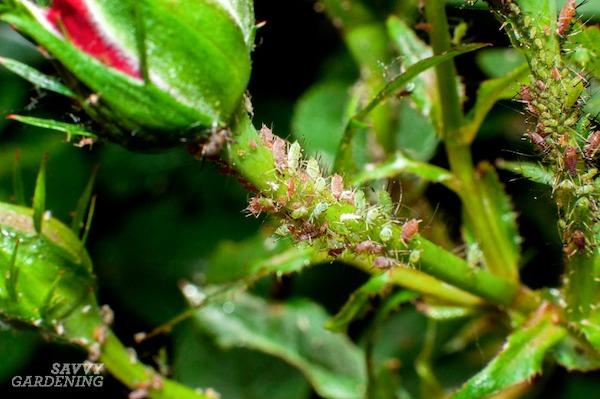Roses are undoubtedly one of the most beautiful flowers in the world. They come in a variety of colors, sizes, and fragrances, making them a popular choice for gardens and floral arrangements. However, keeping these delicate flowers healthy and beautiful can be a challenge, especially when it comes to pest control. Pests such as aphids, spider mites, and thrips can quickly damage your rose bushes, causing them to wilt and die. In this blog post, we will provide you with an easy-to-follow guide on how to effectively control pests and keep your roses healthy and beautiful. We will cover everything from identifying common pests and their damage, to natural and chemical methods of rose pest control. With our guide, you'll be able to keep your roses thriving and ensure that they continue to bloom for years to come.
Introduction to rose pest control
Roses are revered for their beauty and fragrance, making them a popular choice for gardens and landscapes. However, these delicate blooms are not immune to pests that can wreak havoc on their health and appearance. In this guide to effective pest control for roses, we will explore the various pests that commonly plague these beloved flowers and provide you with practical tips and strategies to keep your roses beautiful and thriving.
From aphids and thrips to spider mites and Japanese beetles, rose plants can fall victim to a wide range of pests that feed on their leaves, stems, and blooms. These pests can cause discoloration, stunted growth, and even death if left unchecked. By implementing a proactive pest control strategy, you can protect your roses from infestations and ensure they continue to bloom vibrantly throughout the growing season.
Identifying common pests that affect roses
When it comes to keeping your roses beautiful and healthy, one of the key steps is identifying common pests that can affect them. By being able to recognize these pests early on, you can take proactive measures to protect your roses and prevent any potential damage.
One common pest that often targets roses is aphids. These small insects feed on the sap of the plant, causing leaves to curl and distort. Aphids can multiply rapidly, so it's crucial to catch them early and take action to eliminate them.
Natural pest control methods for roses
When it comes to keeping your roses beautiful, opting for natural pest control methods can be a game-changer. Not only are these methods safe for the environment, but they also help maintain the health and vibrancy of your roses without harmful chemicals.
One effective natural pest control method for roses is introducing beneficial insects into your garden. Ladybugs, lacewings, and parasitic wasps are just a few examples of insects that can help keep harmful pests at bay. These beneficial insects prey on common rose pests such as aphids, thrips, and spider mites, helping to maintain a healthy balance in your garden ecosystem.
Chemical pest control options for roses
Chemical pest control options can be effective in managing pests that threaten the beauty and health of your roses. When considering chemical solutions, it is crucial to prioritize products that are specifically formulated for roses to ensure their safety and effectiveness.
One popular chemical pest control option for roses is insecticidal soap. This gentle yet effective solution targets soft-bodied insects like aphids, spider mites, and whiteflies while posing minimal risk to beneficial insects, pets, and humans. It works by suffocating the pests upon contact, making it a safe choice for your roses.
Preventative measures to keep pests away
Preventative measures are key when it comes to keeping your roses beautiful and healthy. By implementing proactive strategies, you can significantly reduce the risk of pest infestations and ensure the longevity of your plants. One effective method is to regularly inspect your roses for early signs of pest activity. By catching potential issues early on, you can address them before they escalate into full-blown infestations.
Another essential preventative measure is to maintain a clean and tidy garden environment. Pests are often attracted to areas with excess debris, weeds, and decaying plant matter. By regularly removing fallen leaves, pruning dead branches, and keeping the garden well-manicured, you can create a less hospitable environment for pests to thrive.
Conclusion
We trust that our comprehensive guide to effective pest control for your roses has provided you with valuable insights and practical strategies to maintain the beauty of your garden. Roses are delicate and prone to pests, but with the right knowledge and tools, you can keep them healthy and vibrant. By implementing the tips and techniques shared in this blog post, we are confident that you will enjoy a garden full of beautiful, pest-free roses for years to come. Happy gardening!

